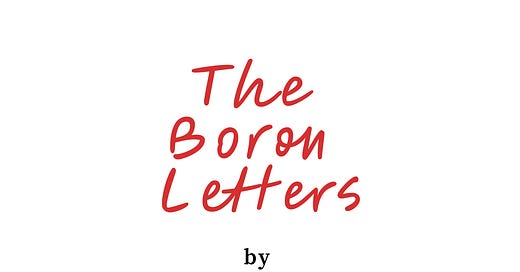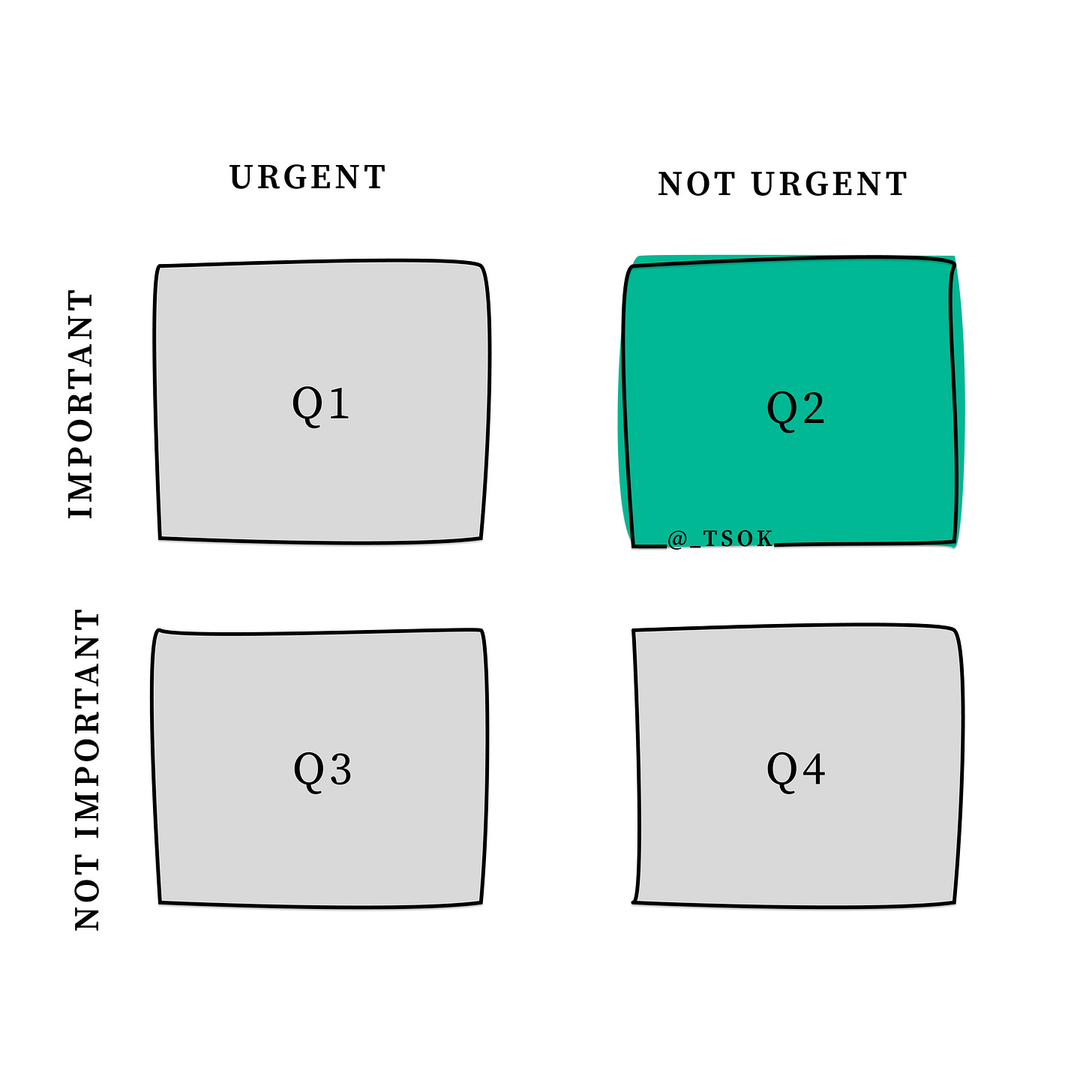You’re sitting there on a quiet Sunday afternoon when an overwhelming feeling of motivation, agency and excitement overcomes you.
It’s time to build that product that’s been whirling around in your head for months.
For the next few weeks/months, you diligently go about creating your product ensuring it’s perfectly ready for the world to see. You’re stressed and tired but building something that’s your own is unbeatable. It’ll be worth it in the end, no doubt.
You read up on marketing and sales pitching (which you naturally hate), crossing all the T’s and dotting all the I’s. Everything has to be perfect.
You’re ready.
It’s time to launch.
This is a moment creators know only too well. It’s a moment full of apprehension, fulfilment and pride. Pressing the button on your product feels like a slow-motion picture movie. It all feels very dramatic and romantic.
Then comes the wait. And the wait.
It doesn’t happen all at once, but after the inevitable disappointment of the launch and subsequent regret, shame and anger, you begin to hope when you see trickles of sales come in. 1 here, 3 there, but the days between these sales begin to stretch and stretch until poof… they’re gone.
This is what being a creator looks like for most people. Whether it’s creating a newsletter, an email course, a mastermind group or any of the thousands of other things people build online and in real life.
Does this sound like you?
It certainly sounds like me and I’d like to say it’s happened only once and I learnt my lesson but it hasn’t. Like ground-hog day it keeps repeating on me like a cheap and dirty burger.
I’ve just finished reading letters from the greatest ever copywriter on how to sell things. These are of course Gary Halbert’s ‘The Boron Letters.’ Stick around to find out how (insert number) X your sales revenue.
But first a story:
“As you know, once in a while I give a class on copywriting and/or selling by mail. One of the questions I like to ask my students is: “If you and I both owned a hamburger stand and we were in a contest to see who would sell the most hamburgers, what advantages would you most like to have on your side?”
The answers vary. Some people say they would like to have the advantage of having superior meat from which to make their hamburgers. Others say they want sesame seed buns. Others mention location. Someone usually wants to be able to offer the lowest prices.
And so on.
Anyway, after my students are finished telling what advantages they would most like to have I say to them: “O.K., I'll give you every single advantage you asked for. I, myself, only want one advantage and, if you will give it to me, I will whip the pants off of all of you when it comes to selling burgers!”
“What advantage do you want?” they ask.
“The only advantage I want,” I reply, “Is A STARVING CROWD!”
Become a Master of Markets
Circling back to our launch it has now become clear why we failed. There was no starving crowd and no matter how tasty and juicy our hamburger is, people (most people) won’t eat when they’re not hungry. It’s just as simple as that.
Here’s billionaire Peter Thiel saying something similar:
"If you've invented something new but you haven't invented an effective way to sell it, you have a bad business—no matter how good the product."
That last part ‘no matter how good the product’ particularly bites. It’s hard to imagine all the great products the world has never seen because people don’t know how or where to sell their product.
Hard work, diligence, blood, sweat and tears are all null and void if nobody wants to buy your hamburger (product).
This is the number one reason you and I suck at selling.
So the question every creator must first ask themselves is not what product can I build, but, ‘Where’s the starving crowd?’
This might be uncomfortable for some, after all this at first glance appears to be going after a trend or fad. ‘Where’s the individuality you say?’
Nobody wants more of the same, we want different because different is new and exciting but you don’t try and sell a hamburger to a vegan, a car to a motorbike enthusiast or alcohol to somebody who’s T total.
They just aren’t interested.
There are plenty of starving people (metaphorically and literally, unfortunately) so your question isn’t ‘Where’s the starving crowd? It should be ‘Where’s my starving crowd?’
Your product should be unique or novel in some way but your target crowd (market) should be selected before hand according to Halbert. This makes sense, and true, there are exceptions where you make something everybody wants (social media apps) but most things don’t work like that.
People who hike most likely won’t be interested in badminton gear just because they are into ‘fitness’ or ‘sport’ and if you base your whole product on selling badminton gear to hikers you will most likely flop. You sell hiking gear to hikers and badminton gear to people who play badminton.
Why?
Because people who regularly buy something are more likely to buy that thing again.
The very first thing you must come to realize is that you must become a "student of markets". Not products. Not techniques. Not copywriting. Not how to buy space or whatever. Now, of course, all of these things are important and you must learn about them, but, the first and the most important thing you must learn is what people want to buy. And it's easy. You see, the way to deduce what people want to buy is to simply observe what they DO buy!
I like hiking but haven’t done it for about 2 years due to a niggling knee injury but here’s the thing, I tell people I love hiking and it’s something I do. Now, it is kind of true but it also isn’t. I’m even thinking of doing Kilimanjaro or Everest base camp in the next few years but I more than likely would be an awful choice for somebody to sell hiking products to because;
I very rarely do it
Because I rarely do it I’m less likely to spend money on new products
And it isn’t just me that does this. We all do it.
All of us, including thee and me, have a slightly shrewd idea of ourselves. We often try to convince others and ourselves that we are something we are not, something we have an idea we "should" be. Therefore, truth, my good son, can be determined NOT by how people use their mouth but rather how they use their wallet.
What should people sell me then? Books. I buy and read them all the time and 2 more arrived today. Books don’t cost a lot and £10 here and £10 there might not seem as impressive as a £300 North Face Jacket but I reckon if I added up my hiking gear purchases and added up what I spend on books I’d have spent more than triple on buying books.
If I was a salesman I’d sell myself books or book products because that’s what I’m most likely to buy.
Again, it’s just that simple.
Armed with this simple but overlooked insight you need to:
Constantly be on the look out for groups of people (markets) who have demonstrated that they are starving (or at least hungry!) for some particular product or service. You want to know what people actually DO buy, not what they SAY they buy. Be skeptical of what people say. Be skeptical of surveys. Of questionnaires. Instead, believe in numbers. For example, if everybody you talk with says they like plays more than movies and yet the numbers say that 10,000 times more people buy movie tickets then you believe the numbers!
Believe in The Numbers Not What People Say
Halbert also has another great bit of advice to add to the starving crowd metaphor-sell to people who are emotionally attached to something in some way.
It has long been my belief that a lot of money can be made by making offers to people who are at an emotional turning point in their lives.
This particularly hits home when people attach an outcome to the product. People who buy fitness, health or wellbeing products are most likely not sitting around not wanting to change their bodies or minds. People who buy spirituality courses or classes are most likely on a journey or in search of a deeper meaning of life and so on.
People are willing to pay for a transformation and they’re willing to pay a lot for it.
“As a general rule, the more "custom tailored" your promotion is the more successful it will be.”
Aside from dropping people’s first names into the email campaign, you can go further with individualisation. There’s a lot for people to sieve through on the internet and if somebody who wants to lose weight sees your product enough times there’s a good chance that they could buy it. You’re serving hamburgers to people who love eating hamburgers.
“Sell people what they want to buy!”
Final Thoughts
The Boron letters were written by Gary Halbert to his son in 1984 when he was in prison. There are lifetimes worth of wisdom in the letters that go beyond sales, covering the importance of working out, how to eat and sleep, hard work, curiosity, pride and ego.
I decided to only pick ‘Find a starving crowd’ because literally and metaphorically it’s so concise. It’s so obvious yet so abstract. We get wrapped up in our ideas and go full steam ahead to the product graveyard where products and dreams die.
Just thinking and visualising this little thing before you dive head first into building your product could make all the difference. It could save years of pain. You should be inspired and you should chase your ideas and curiosity but they have to work in tandem with other factors, mainly, is there a market for my product? If you haven’t found your starving crowd the answer is most likely no.
Selling things is hard work and often demoralising but here’s one final inspiring tip from Halbert that you do have control of:
Everyone wants to climb the mountain, but the big difference between those at the top and those still on the bottom is simply a matter of showing up tomorrow to give it just one more shot. Winners in life and successful people spend a lot more time doing things that fall into Q2 than most people.
- Gary Halbert
Until next time, Karl (The School of Knowledge).
If you enjoyed this article and feel it might help someone then please consider sharing it.
📚I read and share about history’s greatest minds, leaders and achievers, distilling their insights into actionable advice for everyday life.💡





Finding your starving crowd it’s indeed the most important for any entrepreneur! Thanks once again, Karl!
Thanks for distilling these gems!